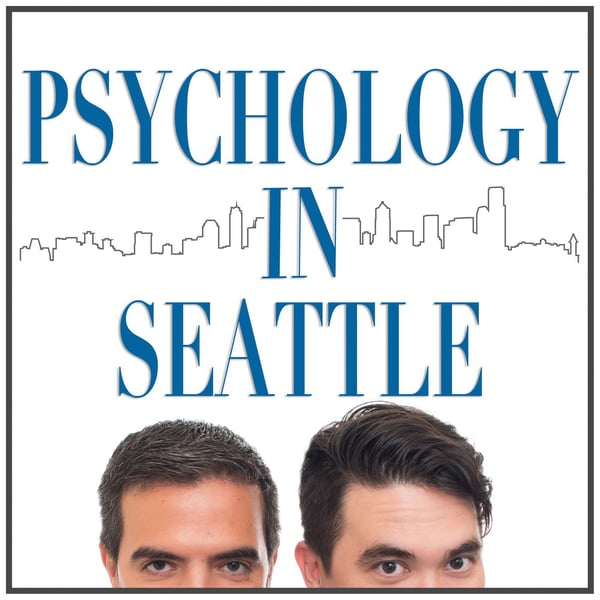How to Prevent Mass Shootings
Psychology In Seattle Podcast
Kirk Honda
4.6 • 1.2K Ratings
🗓️ 6 April 2022
⏱️ 79 minutes
🧾️ Download transcript
Summary
Become a patron: https://www.patreon.com/PsychologyInSeattle
Email: https://www.psychologyinseattle.com/contact
Get merch: https://teespring.com/stores/psychology-in-seattle
Dr. Kirk’s Cameo: https://www.cameo.com/kirkhonda
Instagram: https://www.instagram.com/psychologyinseattle/
Discord: https://discord.gg/6QR4sE8x9K
Reddit: https://www.reddit.com/r/PsychologyInSeattle/
Twitter: https://twitter.com/PsychInSeattle
Facebook Official Page: https://www.facebook.com/PsychologyInSeattle/
Facebook Fan Page (run by fans): https://www.facebook.com/groups/112633189213033
The Psychology In Seattle Podcast ®
Trigger Warning: This episode may include topics such as assault, trauma, and discrimination. If necessary, listeners are encouraged to refrain from listening and care for their safety and well-being.
Disclaimer: The content provided is for educational, informational, and entertainment purposes only. Nothing here constitutes personal or professional consultation, therapy, diagnosis, or creates a counselor-client relationship. Topics discussed may generate differing points of view. If you participate (by being a guest, submitting a question, or commenting) you must do so with the knowledge that we cannot control reactions or responses from others, which may not agree with you or feel unfair. Your participation on this site is at your own risk, accepting full responsibility for any liability or harm that may result. Anything you write here may be used for discussion or endorsement of the podcast. Opinions and views expressed by the host and guest hosts are personal views. Although, we take precautions and fact check, they should not be considered facts and the opinions may change. Opinions posted by participants (such as comments) are not those of the hosts. Readers should not rely on any information found here and should perform due diligence before taking any action. For a more extensive description of factors for you to consider, please see www.psychologyinseattle.com
This show is part of the Spreaker Prime Network, if you are interested in advertising on this podcast, contact us at https://www.spreaker.com/show/3269717/advertisement
Transcript
Click on a timestamp to play from that location
| 0:00.0 | Hey, deserving listeners. As you all know, over the years, y'all have asked me to talk about various |
| 0:06.4 | different issues regarding murder and mass shootings and serial killers and psychopathy. We've |
| 0:15.6 | discussed it from a number of different angles. We've discussed different events. We've discussed |
| 0:20.4 | different diagnoses. We've discussed different ways of treating these individuals, potentially. |
| 0:25.1 | One of the things that will come up occasionally is the trend of mass shootings that's been happening |
| 0:31.4 | over the past decade. And it seems to be on the rise and how do we prevent that from happening? |
| 0:38.8 | What are we doing to encourage it to continue? So I thought I would have Mark Fulman on the |
| 0:45.3 | podcast right now. He's an author and an expert on how to prevent and reduce mass shootings. Welcome |
| 0:52.6 | to the podcast, Mark. Thanks for having me on. Tell us about your book. Yeah, so the book is called |
| 0:57.1 | Trigger Points. Inside the mission to stop mass shootings in America. It's coming out April 5th, |
| 1:04.5 | Harper Collins. I'm very excited about it. I've worked on it for a number of years now. It's |
| 1:10.4 | rooted in work. I've done investigating this problem with mass shootings from other Jones, |
| 1:16.0 | where I'm an editor and writer. And I began really focusing quite a bit on mass shootings, |
| 1:24.8 | almost a decade ago now. In 2012, after the movie theater massacre that took place in Aurora, |
| 1:31.2 | Colorado, there were several more of that fall. And then of course, Sandy Hook in December of that |
| 1:37.8 | year was a real watershed event with this problem. And I began building a database of mass shootings |
| 1:44.0 | because when I looked into it, I was startled to find that there weren't really good sets of |
| 1:49.6 | data on this problem publicly available. So I started collecting it and doing some further reporting. |
| 1:56.5 | And I began in the course of that work to learn about the field of threat assessment, |
| 2:02.0 | behavioral threat detection, and the efforts that have been going on for quite a long time, |
| 2:06.8 | actually, mostly behind the scenes to prevent planned violence. And that's the nature of this |
| 2:14.3 | problem. These are planned attacks. We can get into talking more about the kind of mythology around |
... |
Please login to see the full transcript.
Disclaimer: The podcast and artwork embedded on this page are from Kirk Honda, and are the property of its owner and not affiliated with or endorsed by Tapesearch.
Generated transcripts are the property of Kirk Honda and are distributed freely under the Fair Use doctrine. Transcripts generated by Tapesearch are not guaranteed to be accurate.
Copyright © Tapesearch 2025.

